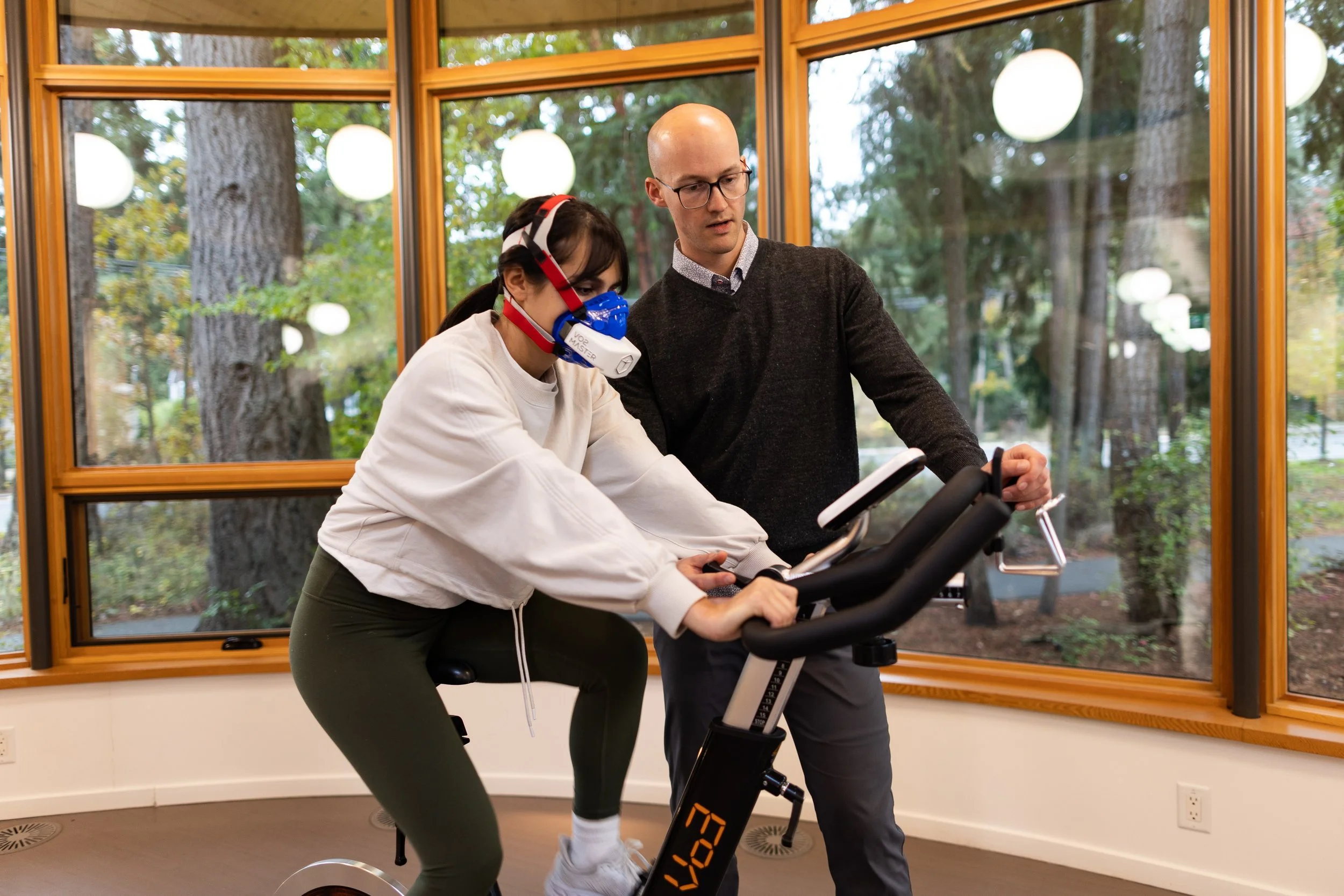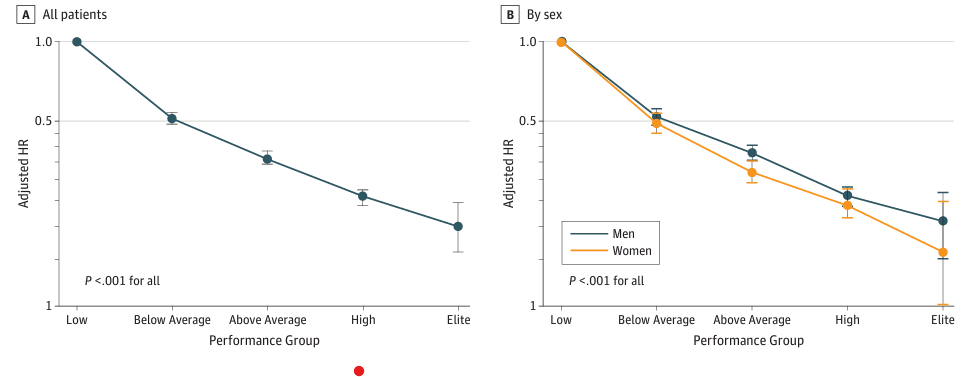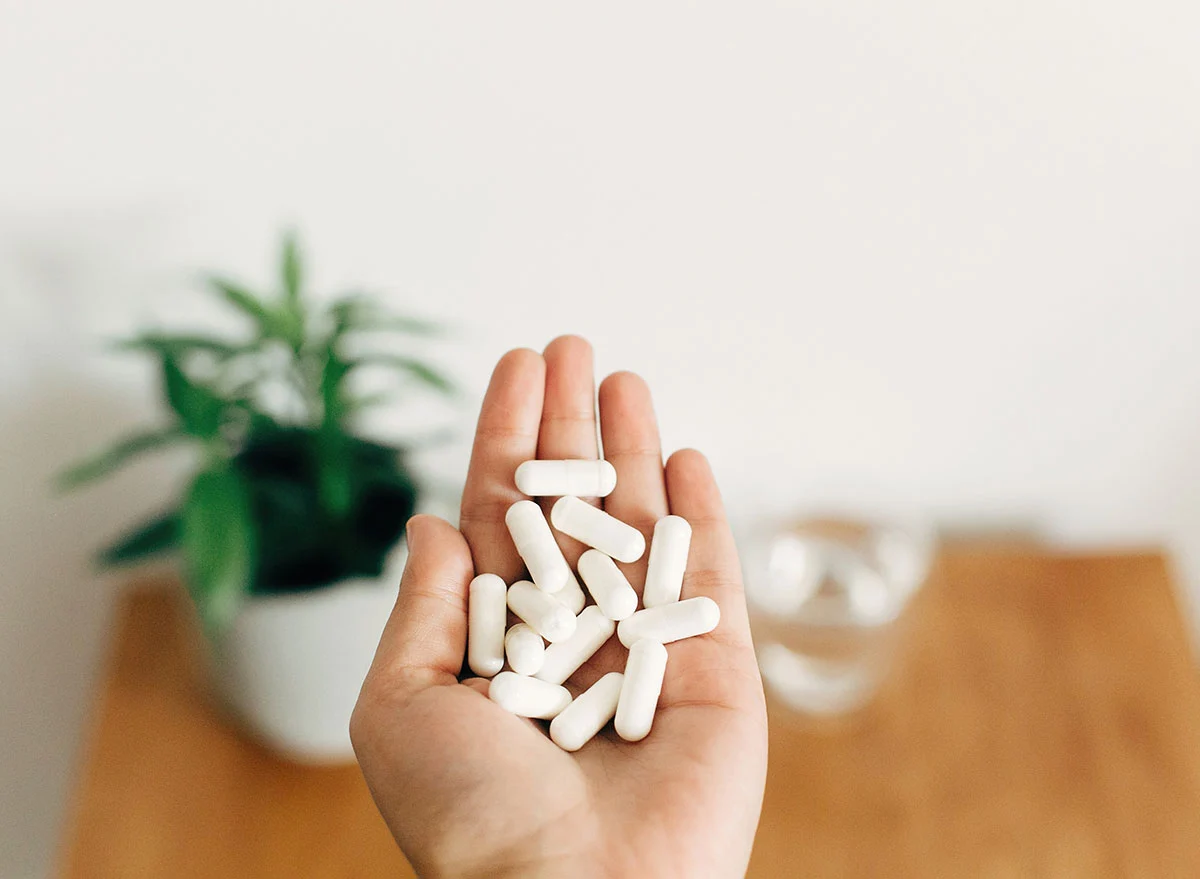What is VO2 Max and How Can It Increase My Lifespan?
Imagine a test that could predict your long-term health, even your lifespan. It’s called VO2max, and it’s more than just a number—it’s a powerful measure of how well your heart, lungs, and muscles work together. Terms like VO2max, longevity, aerobic capacity, or healthspan might sound like gym jargon, but they’re quickly becoming hot topics in healthcare. Here, we break down what VO2max means and why it could be one of the most important numbers you track for your health.
What is VO2max?
VO2max is the maximum rate (volume) of oxygen (O₂) your body can use during exercise—a powerful measure of your body’s aerobic engine. It represents how effectively your heart, lungs, and muscles work together to deliver and use oxygen when you push yourself to the limit. Widely regarded as one of the best indicators of cardiorespiratory health, VO2max becomes increasingly important as we age. A higher VO2max is a strong predictor of your ability to live independently and perform everyday tasks like climbing stairs, carrying groceries, or playing with your grandchildren. Typically measured through a graded exercise test on a treadmill or stationary bike, VO2max is a valuable tool for tracking both health and fitness progress over time.
Why Should I Care?
VO2max has traditionally been associated with high-performance athletes, and it’s true that endurance athletes and professional sports teams, like those in the NHL, use VO2max scores to monitor fitness levels. Here at Tall Tree, we conduct testing for the Victoria Royals of the WHL, where precise fitness metrics are critical to optimize training. VO2max isn’t just for athletes—research shows it is more important for the general population. Why? Because aging affects us all. As we get older, our risk of developing age-related diseases like cancer, diabetes, heart disease, and neurodegenerative conditions increases. These health problems, often called the "Four Horsemen" by longevity experts like Peter Attia, are major causes of all-cause mortality, or simply put, dying of anything. The science is clear: VO2max plays a pivotal role in reducing health risks. For example, increasing your VO2max from ‘low’ to ‘below average’ reduces your risk of death by 50%. Moving from ‘low’ to ‘above average’ is linked to a staggering 70% reduction in mortality risk. To put this in perspective, smoking increases all-cause mortality by just 30%. This highlights how profoundly VO2max can influence your overall health—the fitter you are, the less likely you are to develop chronic health problems as you age.
Table from Mandasger et al, 2018. JAMA Netw Open. 2018;1(6):e183605. doi:10.1001/jamanetworkopen.2018.3605
Table 1. VO2 Max categorization for women across all 5 groupings and up to age 80. Reproduced from: Mandsager K, et al., 2018 (doi:10.1001/jamanetworkopen.2018.3605)
Table 2. VO2 Max categorization for men across all 5 groupings and up to age 80. Reproduced from: Mandsager K, et al., 2018 (doi:10.1001/jamanetworkopen.2018.3605)
“Each step change is more powerful than if you went from being a lifelong smoker to never having smoked before, or from having a coronary artery disease to not, or from having type 2 diabetes to not having diabetes. This is a big deal. ”
But VO2max isn’t just about living longer; it’s about living better. A higher VO2max means your body is better equipped to handle physical stress, whether that’s a tough hike or fighting off an illness. It’s also strongly linked to lower risks of heart disease, diabetes, and other chronic conditions, making it one of the best predictors of not just lifespan, but healthspan—the number of high-quality years you can expect as you age. Improving VO2max isn’t just a fitness goal; it’s a foundation for resilience and vitality at every stage of life.
Is It Too Late for Me to Get Tested or Improve My Score?
One of the most encouraging aspects of VO2max is that it’s highly trainable. No matter your age or current fitness level, you can improve your VO2max with the right exercise. Although VO2max naturally declines by about 10% per decade—and by up to 15% per decade after age 50—regular exercise can slow, stop, or even reverse this decline. Think of your VO2max as a health savings account. The more you invest in regular exercise now, the larger your "reserves" will be for the future. Building your aerobic capacity today not only enhances your quality of life right now but also extends the number of high-functioning years you’ll enjoy as you age. This proactive approach ensures you’ll have the physical resilience to draw upon when you need it most. And the best part? You don’t need a gym membership or extreme workouts to see results. Simple activities like brisk walking, cycling, or dancing can all help improve your VO2max over time. With consistent effort, most people can increase their VO2max by 5-20% in just 3-4 months, and some see up to a 50% improvement with long-term training. Whether you’re a seasoned athlete or just getting started, every step toward improving your VO2max brings you closer to a healthier, longer life.
The Magic of Test-Retest
Just as you visit the dentist, optometrist, or GP for regular checkups, VO2max testing can be a valuable check-in for your cardiorespiratory health. Annual tests allow you to track your progress, evaluate the effectiveness of your training plan, and stay motivated toward your fitness goals. A routine VO2max check doesn’t just reflect your current fitness level—it’s also a key indicator of resilience against conditions like heart disease, diabetes, and age-related decline.
Next Steps
If you're intrigued and ready to take the next step in your longevity journey, consider scheduling a VO2max test at Tall Tree. We’ll guide you through the process and offer personalized advice on how to improve your score with targeted training. For those wanting extra support, our kinesiologists offer specialized VO2max training sessions. These sessions feature personalized VO2max-building workouts, along with a customized training plan to help you reach your goals
The Takeaway
VO2max is a powerful predictor of long-term health, directly linked to your risk of chronic diseases and overall longevity. Regular testing and tracking provide valuable insights into your fitness progress and help you make informed decisions to improve your cardiovascular health. Whether you're a seasoned athlete or just getting started, improving your VO2max can help you live a longer, healthier life, allowing you to stay active and enjoy the things you love for years to come.


































